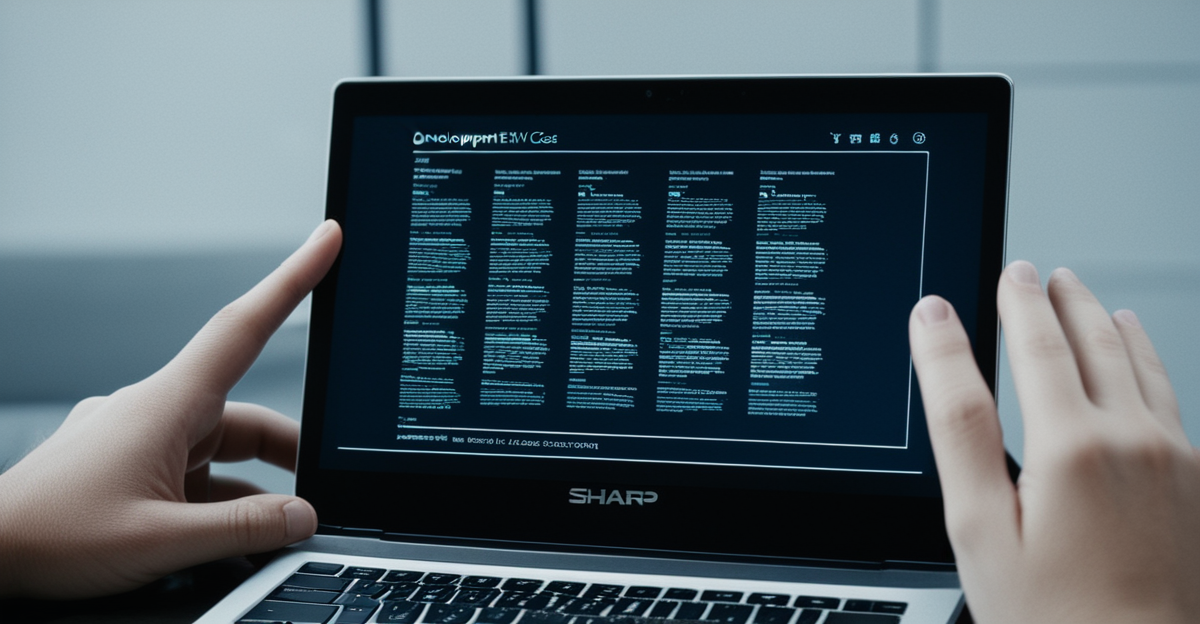Historical Milestones in UK Computing Technology
The UK computing history is marked by groundbreaking achievements that set foundations for modern computing. A key figure is Alan Turing, whose early computing concepts and theoretical work during World War II laid critical groundwork. His vision of programmable machines and codebreaking at Bletchley Park was pivotal.
One of the key innovations includes the Colossus, the world’s first programmable digital computer, developed to decipher encrypted German communications. This innovation not only contributed to wartime success but also propelled computing into new territories.
Also to read : How is the UK government incentivizing innovation in high-tech sectors?
Following this, consumer hardware such as the Sinclair ZX Spectrum and BBC Micro revolutionised home computing in the UK. These machines made programming accessible to a wider audience, fostering a generation fascinated by technology.
The rise of the UK’s expertise in semiconductor and chip design further shaped computing advancements. British engineers developed crucial microchip technologies that influenced global electronic industries, cementing the UK’s role as a British technology pioneer in both hardware and software realms. These milestones collectively highlight the UK’s lasting impact on computing technology development.
Also read : Streamline your life with professional control4 installation
Historical Milestones in UK Computing Technology
The UK computing history is marked by pioneering breakthroughs, beginning with Alan Turing’s conceptual work on computation. Turing’s ideas laid the groundwork for modern digital computing, introducing the concept of a universal machine. This was a foundational breakthrough that shaped future technologies globally.
Among key innovations, the Colossus stands out as one of the world’s first programmable digital computers, developed during World War II to break encrypted German messages. Its success was a testament to British technology pioneers pushing the boundaries of what machines could achieve.
Following the wartime advances, the UK also introduced influential home computing hardware. The Sinclair ZX Spectrum and the BBC Micro were significant in popularising computing among the general public in the 1980s. These devices not only brought computers into households but also nurtured a generation of programmers and developers in the UK.
Simultaneously, the UK played a crucial role in semiconductor and chip design, an area that supported these innovations and helped place British technology pioneers at the heart of the evolving digital revolution. This sector laid the foundation for future advances in miniaturisation and processing power.
Technical Innovations That Shaped the Digital Landscape
The British computing advancements trailblazed by the UK extend well beyond early machines to influential modern developments like the ARM architecture. ARM microprocessors, designed by British engineers in the 1980s, have become foundational to an array of devices. Their energy-efficient design is a hallmark of UK tech innovation, powering billions of smartphones, tablets, and IoT gadgets globally.
What made ARM revolutionary was its focus on reduced instruction set computing (RISC), which optimizes performance without excessive power consumption. This architecture marked a significant shift from the UK’s original government-focused computing projects to widespread consumer application, reflecting a broader trend of accessibility in British computing advancements.
British engineering continues shaping accessible computing, enabling compact, affordable, and high-performing devices. This evolution mirrors the earlier UK computing history where key innovations transitioned from complex wartime machines like Colossus to household devices like the Sinclair ZX Spectrum. Today’s tech owes a great deal to this seamless progression from specialized to consumer-focused computing, ensuring British technology pioneers remain at the forefront of digital innovation worldwide.
Technical Innovations That Shaped the Digital Landscape
British computing advancements have profoundly influenced the evolution of modern digital technology. A prime example is the development of the ARM architecture, a groundbreaking innovation by British technology pioneers that transformed microprocessor design. ARM microprocessors stand out for their energy efficiency and versatility, powering a vast range of devices from smartphones to embedded systems.
This UK tech innovation marked a shift from heavy, government-focused hardware toward accessible computing solutions for consumers. British engineering focused on miniaturisation and low power consumption, enabling mobile and wearable technologies that define today’s connectivity. The ARM architecture’s success illustrates how British innovation prioritised practical, scalable approaches, setting industry standards worldwide.
The evolution from early computing machines to these sophisticated processors demonstrates the continuum of British computing advancements. ARM’s influence extends beyond hardware: it fostered new software ecosystems and developer communities, further broadening the reach of UK tech innovation. Thus, British engineering not only shaped devices but also helped democratise access to computing, making technology more inclusive and adaptable to user needs globally.
Historical Milestones in UK Computing Technology
British technology pioneers laid critical groundwork in UK computing history, starting with Alan Turing. Turing’s early computing concepts introduced the idea of programmable machines, influencing the entire computing field. His theoretical models provided the foundation for later digital computers, marking a foundational breakthrough.
Among key innovations, the Colossus deserves special mention as the first programmable digital computer, designed for codebreaking in World War II. It showcased British technical ingenuity and advanced computing capabilities. Post-war, devices like the Sinclair ZX Spectrum and the BBC Micro were instrumental in popularising computing across UK households. These machines made technology more accessible and nurtured a generation eager to explore programming.
Alongside these milestones was the rise of UK expertise in semiconductor and chip design. British engineers contributed to developing more efficient and compact chips, enabling the miniaturisation of computing hardware. This technological base supported the progression from specialized wartime machines to affordable consumer products, highlighting the UK’s enduring role as a hub for innovation in computing technology.
Historical Milestones in UK Computing Technology
The UK computing history began with foundational breakthroughs by British technology pioneers like Alan Turing. Turing introduced early concepts of computation and programmable machines, laying groundwork for the digital era. His work directly influenced subsequent innovations and remains a cornerstone in the history of computing.
Among the key innovations in UK computing history is the Colossus machine, developed during World War II to decipher complex coded messages. This programmable computer was revolutionary, showcasing the UK’s leading role in early computing hardware. Its success demonstrated the practical application of theoretical concepts and advanced cryptanalysis.
Following the war, devices such as the Sinclair ZX Spectrum and the BBC Micro played a pivotal role in bringing computing into British homes. These machines popularised programming and nurtured a generation interested in technology, reflecting the broad impact of British technology pioneers.
Simultaneously, the UK’s rise in semiconductor and chip design bolstered these achievements. Innovations in microchips enabled smaller, faster, and more efficient computers, supporting the transition from specialised wartime technology to widely accessible consumer hardware. This progression highlights the UK’s enduring influence on computing technology development.










